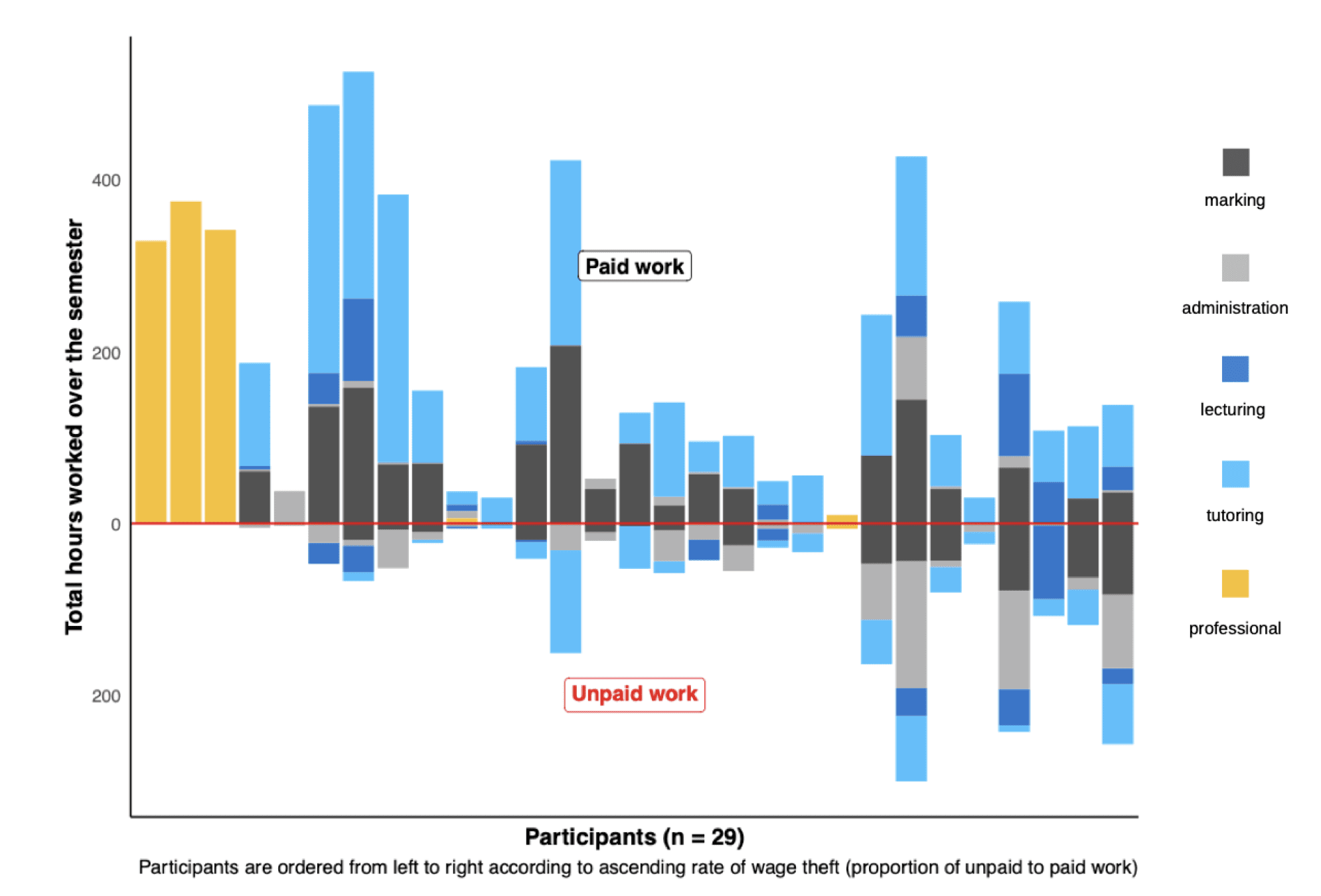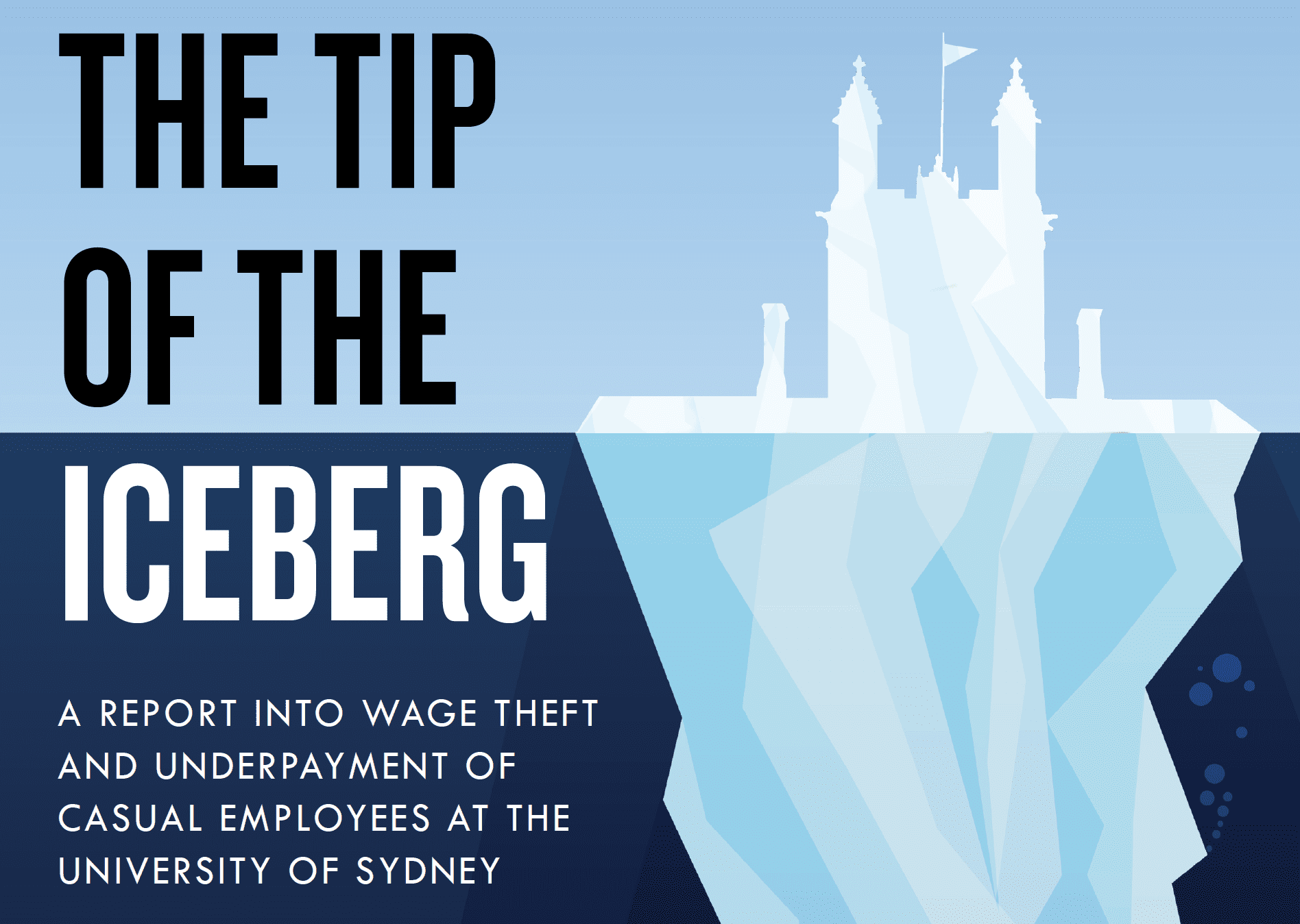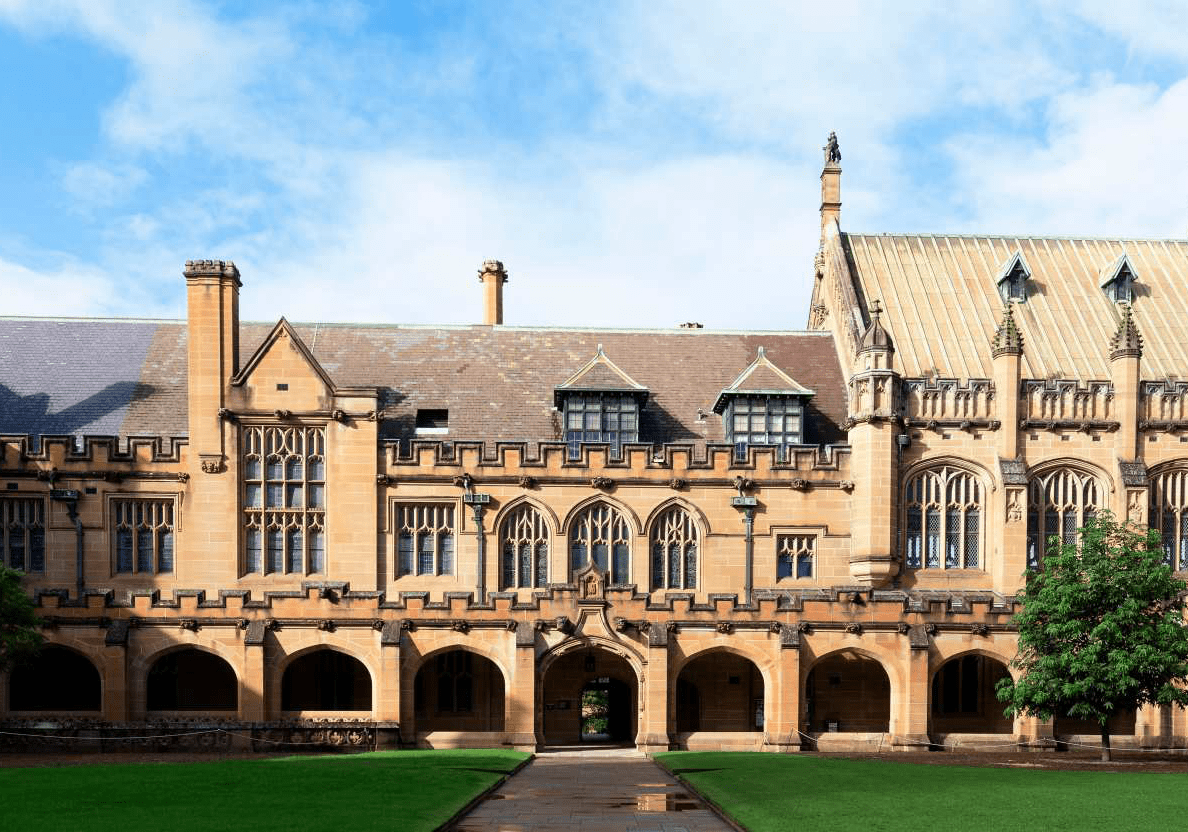Further evidence has come to light regarding systemic wage theft and underpayment of casual staff at the University of Sydney.
The USyd Casuals Network and the National Tertiary Education Union (NTEU) have released a report titled ‘The Tip of the Iceberg,’ revealing that 90% of participants performed unpaid work during Semester 2, 2020. The mean underpayment of the 29 casual staff who participated in the audit was $4,130, with one reporting stolen wages of $19,065.
The report confirmed that the amount of hours casuals work is not reflected in their pay, indicating that the University’s use of the ‘piece rate’ model results in systemic wage theft. While staff are allocated a set amount of hours for each task, the report showed that these allotments don’t cover the amount of time needed to complete them to an acceptable standard.
A large proportion of underpayment found in the audit derived from administration work such as answering emails, developing unit outlines, and setting up online learning systems. One participant recalled being allocated only 13 hours in administration pay across the whole semester, which wasn’t even enough to cover work done leading up to the commencement of classes. By the end of the audit, they had worked 115 hours in excess, amounting to $7,086 in stolen wages.

Underpayment for marking work was also flagged as a serious issue, with one participant reporting “they could only give students meaningful feedback if they doubled the allocated time of one hour per 4,500 words.”
Critically, the audit found that the marking rate for many casual staff was misclassified. For marking which requires ‘significant exercise of academic judgement,’ the University is required to pay staff at a higher marking rate of $72/hour. However, when marking long-form essays, many casual academics were paid at a standard rate of $52-$62/hour which is generally used for simpler assessments like multiple-choice.
Also among the report’s key findings was that women had 1.5 times the amount of wages stolen compared to men, which was attributed to women performing more unpaid hours of work.
The 10% of casuals that did not report underpayment were professional research staff, who are paid the actual hours worked rather than a piece rate. However, the report noted that “even when casuals are paid appropriately, the subordinate and dependent position they occupy in the workplace means they are vulnerable to other forms of unfair treatment.”
One participant from the Faculty of Medicine and Health reported doing work well above that expected of their role yet faced difficulties in applying to a more suitable position. They also claimed that their research contributions were misappropriated by staff in superior positions at School meetings they were excluded from.
“Casualised staff perform the core work of Australian universities. Yet as students and members of the public have long suspected, and as management have always known, they are not paid appropriately for that work,” said report co-author Georgia Carr.
“Our report shows that not only are casualised staff in an increasingly vulnerable position in a post-pandemic workplace, but also that when they do have work they are shamefully exploited.”
The report emphasised that its findings were just the “tip of the iceberg” — situated in a body of research which shows wage theft is endemic across the university sector and in the Australian economy as a whole.
It follows an interim report released in November, which detailed a similar pattern of underpayment that occurred in the first six weeks of Semester 2, 2020.
In light of their findings, the USyd Casuals Network and NTEU have demanded that the University conduct a full-scale audit of underpayment amongst casuals, pay back all unpaid wages, and enshrine appropriate rates of pay in the next Enterprise Agreement. They also called upon the University to reduce its dependency on a casualised workforce, which would provide “greater employment and income security” to staff.
“Our audit is part of a mounting campaign to lift the lid on wage theft in our universities,” co-author Robert Boncardo said. “Hopefully, it’s the beginning of the end for this life-and-career-destroying employment model.”

The USyd Casuals Network and NTEU are holding a launch for ‘The Tip of the Iceberg’ on Tuesday 18 May at 3pm on Zoom.





